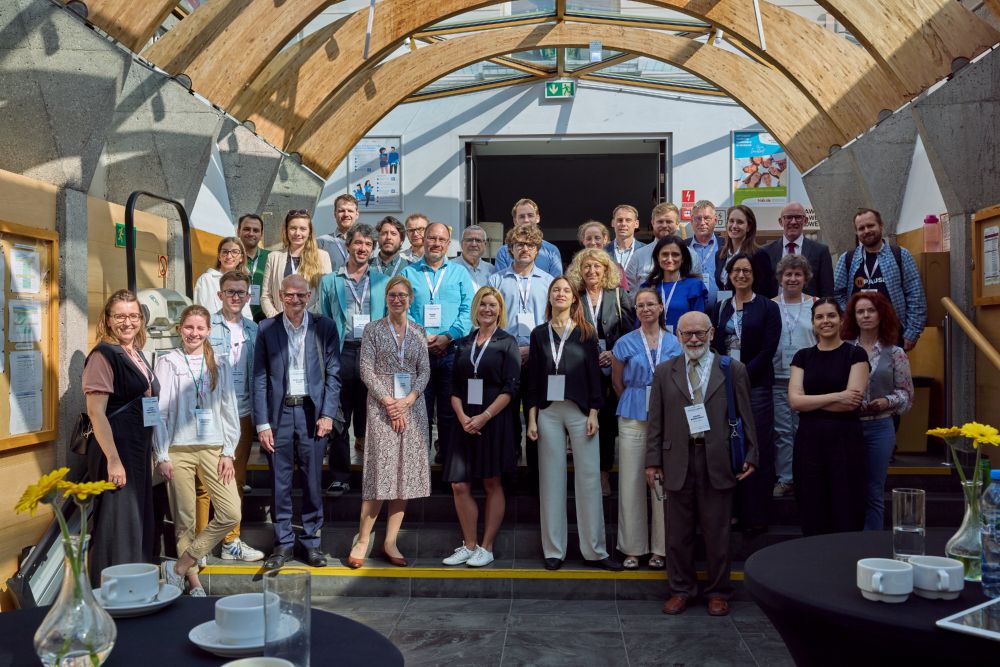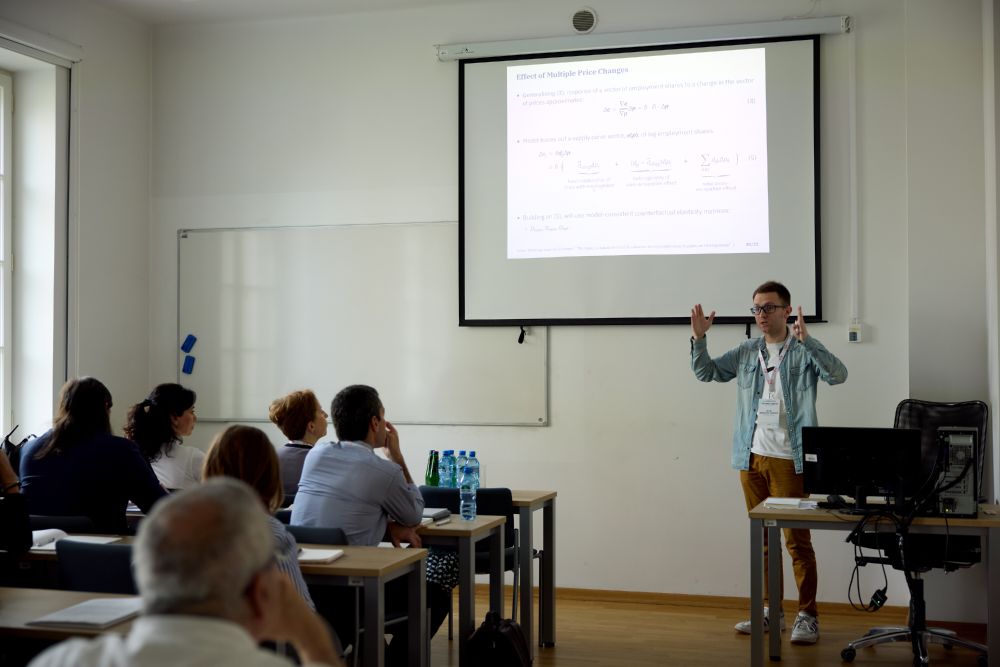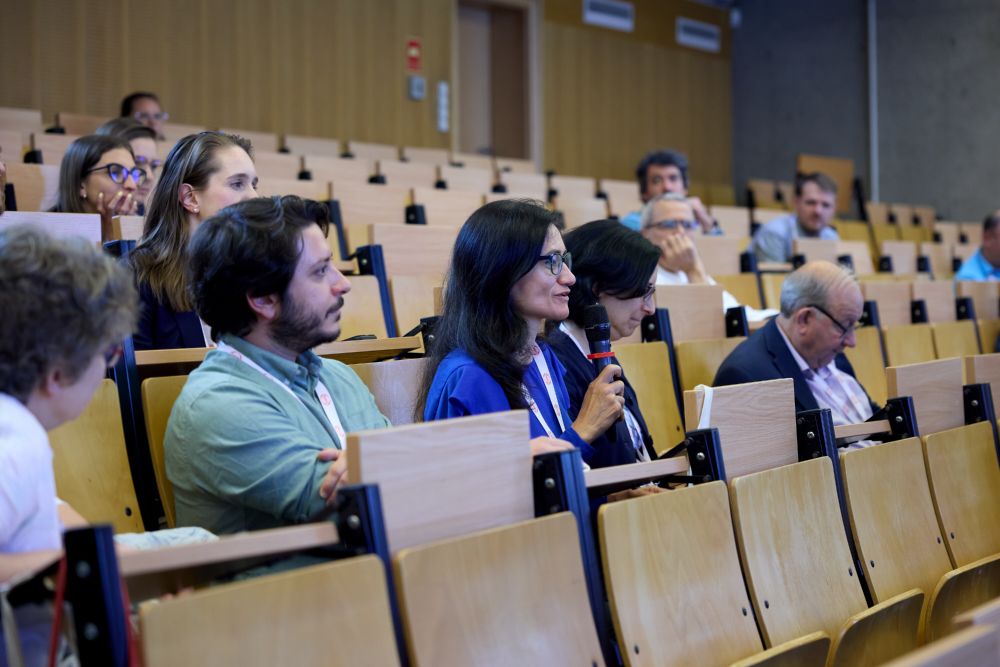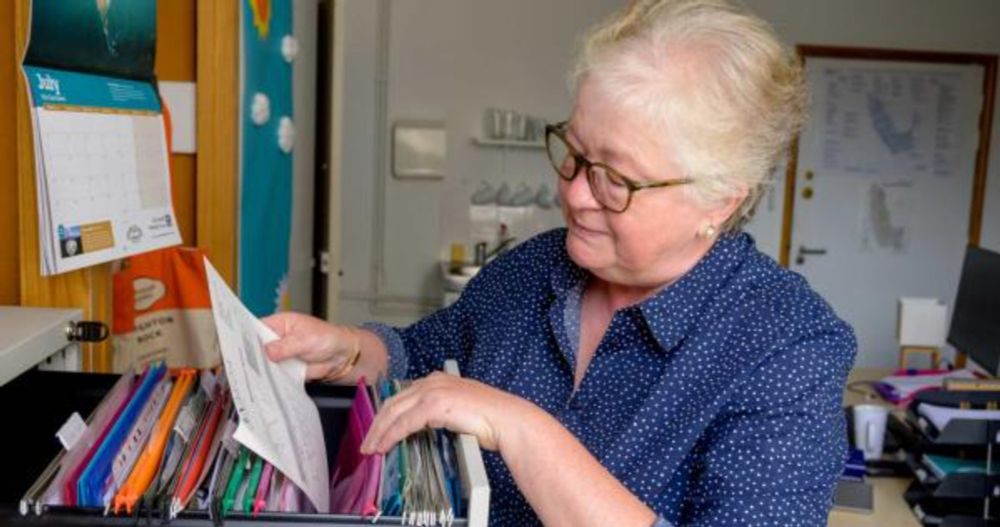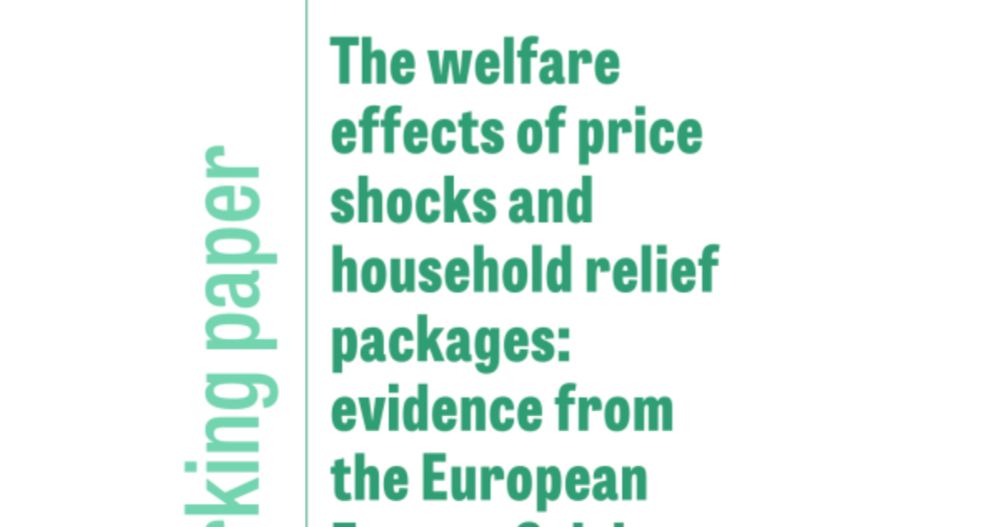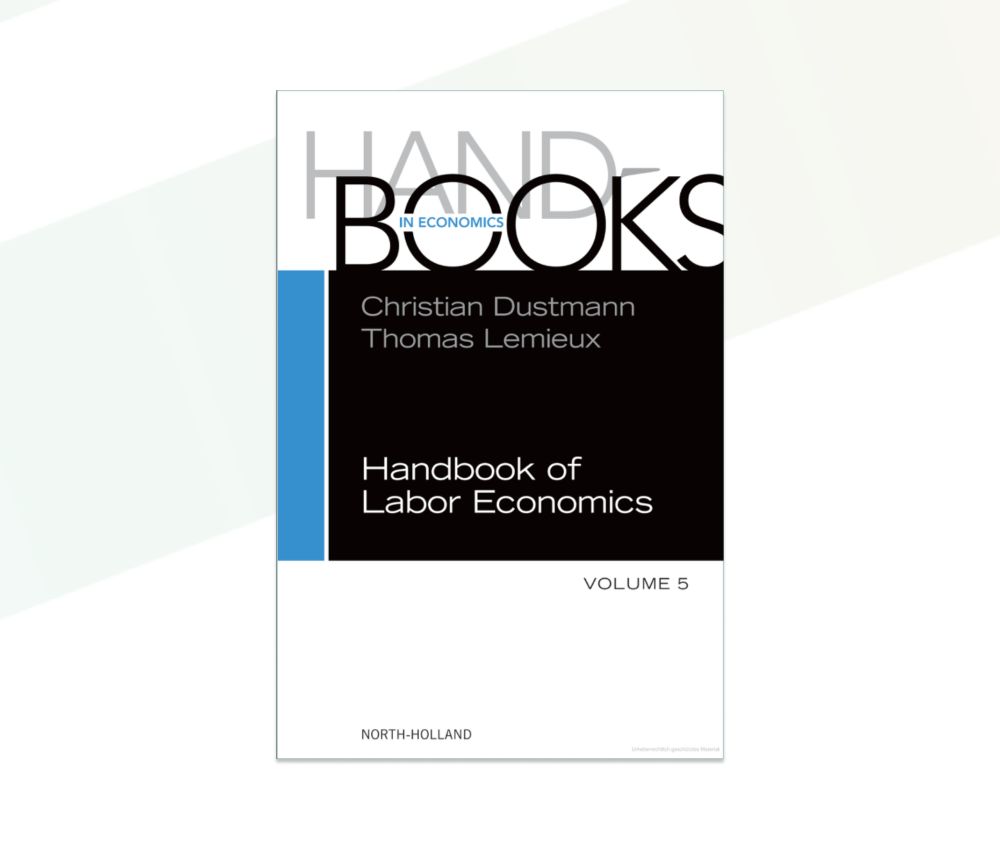
NEW PODCAST: Is the minimum wage costing jobs?
@helenmiller.bsky.social, @eduinlatimer.bsky.social and @alanmanning4.bsky.social discuss what we know and what we don't know about the UK minimum wage in our new podcast.
🎧 Listen here: ifs.org.uk/articles/min...
29.01.2026 16:22 —
👍 2
🔁 1
💬 0
📌 3
Here's a starter pack of IFS economists posting on BlueSky. Make sure you're following them all for the top-quality economic analysis on labour markets, inequality, public finances, healthcare, education and more! go.bsky.app/NYPwMB
16.01.2026 17:55 —
👍 4
🔁 5
💬 0
📌 2

📢 Call for papers!
The EAYE Annual Meeting welcomes submissions of full papers or extended abstracts (4-8K characters) in all fields of economics
👉 18–20 May '26, University of the Basque Country
⏲️ Submission deadline extended to 28 December 2025!
14.11.2025 14:34 —
👍 4
🔁 7
💬 1
📌 0

Chart shows total number of unincorporated self-employed. Title states: "Official statistics have substantially overstated the size of the UK’s self-employed population in the past two decades."
NEW: New data show that official statistics have overcounted the number of self-employed workers in the UK for decades.
@helenmiller.bsky.social, Isaac Delestre, Kate Smith and @bojs.bsky.social’s new report uses newly available data to fill the gap in the statistical record:
29.10.2025 08:10 —
👍 3
🔁 4
💬 1
📌 0

New at JIE: "Household responses to trade shocks" by Aitor Irastorza-Fadrique (@aitor-if.bsky.social), Peter Levell (@peterlevell.bsky.social), Matthias Parey
doi.org/10.1016/j.ji...
29.09.2025 17:30 —
👍 4
🔁 2
💬 1
📌 0
The University of the Basque Country (@ehu.eus) is hosting the 2026 EAYE Annual Meeting.
2026ko EAYE konferentzia Euskal Herriko Unibertsitatean izango da. Artikuluak bidaltzeko epea zabalik dago, abenduaren 1era bitarte. Informazio guztia hemen: www.eaye.info/eayeam/2026-...
22.09.2025 14:32 —
👍 5
🔁 2
💬 0
📌 0

EVENT: IFS recruitment event 2025
Wednesday 1 October | 5pm – 6pm | Online via Zoom
Want to work at IFS? Join our recruitment event to meet our staff, ask questions about life at IFS and find out more about our hiring process.
➡️ Find out more and sign up here: ifs.org.uk/events/ifs-r...
22.09.2025 13:23 —
👍 2
🔁 1
💬 0
📌 0
"AI is probably more impactful for employment even than the Dot-com revolution of the nineties. This is more like the industrial revolution of the 19th century"
Sir Philip Augar discusses the impact of AI on the labour market.
🎧 Listen here: ifs.org.uk/articles/are...
04.09.2025 07:45 —
👍 2
🔁 3
💬 0
📌 1
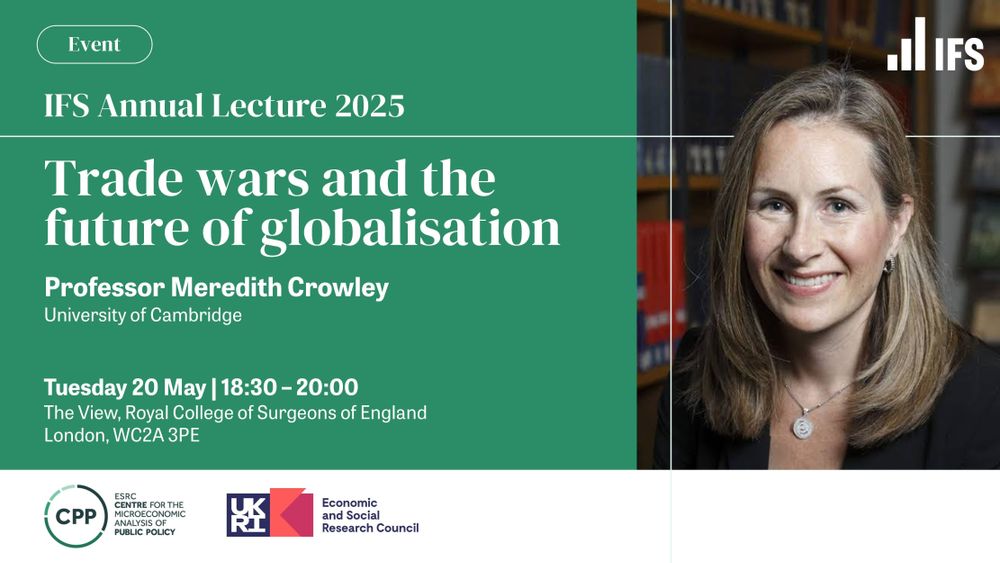
Join us for our 2025 IFS Annual Lecture on trade wars and the future of globalisation, presented by Professor @meredith-crowley.bsky.social
Tuesday 20 May | 18:30–20:00 | The View, Royal College of Surgeons, London
Find out more and sign up here: ifs.org.uk/events/ifs-a...
22.04.2025 08:10 —
👍 4
🔁 2
💬 0
📌 0
11/ But this works both ways.
Occupations in health/education may see larger wage increases, but can’t attract IT workers – low cross-elasticity.
Result: IT projected to grow >20% as share of employment over the next decade.
14.04.2025 10:38 —
👍 0
🔁 0
💬 1
📌 0

10/ Take, for example, IT. Why does it grow fast?
Relative wage gains in IT attract inflows from jobs with smaller wage shifts.
It can pull in workers from many nearby jobs – both technical and managerial.
14.04.2025 10:38 —
👍 2
🔁 0
💬 1
📌 0

9/ The model projects
🏗️ IT & construction: employment gains
👩🏫 Health & education: wage rises
🏭 Manufacturing + some high-skill jobs (e.g accountants): wage declines
14.04.2025 10:38 —
👍 0
🔁 0
💬 1
📌 0
8/ We then simulate how the labour market might respond to automation-driven tech shocks. We combine
🧍 Worker flows (2012-2021)
🤖 Expert views on task-automation risk
= equilibrium projections of employment, wage & job flows.
14.04.2025 10:38 —
👍 0
🔁 0
💬 1
📌 0
7/ Key insight 2️⃣
Elasticity heterogeneity explains 20% of the variation in occupational employment growth over 1985-2010.
Demand shocks explain 60%, supply shocks the rest.
14.04.2025 10:38 —
👍 0
🔁 0
💬 1
📌 0
6/ Key insight 1️⃣
Demand shocks often hit groups of similar jobs (e.g. motor vehicle drivers, railway engine drivers). This makes it harder for workers to switch, slows employment adjustment, and leads to more unequal wage changes.
14.04.2025 10:38 —
👍 1
🔁 0
💬 1
📌 0
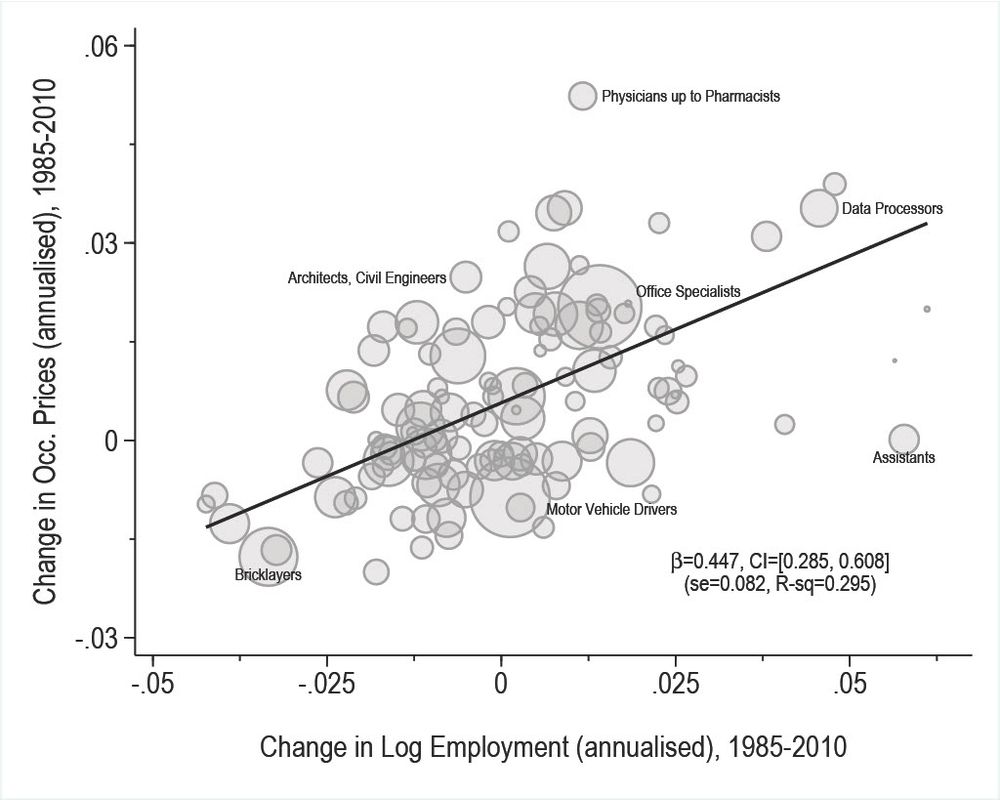
5/ We use German panel data tracking career moves.
[1985-2010] Some occupations adjusted to shocks via jobs (e.g. assistants), others via wages.
What explains this? Spoiler: elasticity matters.
14.04.2025 10:38 —
👍 1
🔁 0
💬 1
📌 0
4/ We develop a tractable equilibrium model of the labour market that accounts for this heterogeneity. It helps us:
1️⃣ explain historical employment & wage shifts
2️⃣ project responses to future automation shocks
14.04.2025 10:38 —
👍 0
🔁 0
💬 1
📌 0
3/ Labour supply elasticities differ not just by job but by job pair.
For example, workers in laboratory medicine may shift quickly into human medicine if wages rise – but carpenters into IT? Much harder.
14.04.2025 10:38 —
👍 0
🔁 0
💬 1
📌 0
2/ Not all jobs are equally “elastic”. Some (e.g. doctors) have rigid labour supply – higher wages don’t attract many new workers.
Others (e.g. assistants) are flexible – wage rises boost employment.
14.04.2025 10:38 —
👍 0
🔁 0
💬 1
📌 0
1/ The labour market has seen significant changes in recent decades. With automation accelerating, more is coming.
Can workers switch jobs fast enough to keep up?
We study how reallocation across occupations shapes wages, employment and inequality. #EconSky
New WP ⬇️
ifs.org.uk/publications...
14.04.2025 10:38 —
👍 10
🔁 3
💬 1
📌 0
How much do regional inequalities shift when we swap income for consumption?
New estimates of household spending (net of housing) show smaller gaps — and a different map.
Methodologically rigorous, policy-relevant work from my colleagues @peterlevell.bsky.social and Gautam Vyas
#EconSky
11.04.2025 08:40 —
👍 4
🔁 1
💬 0
📌 0
"It's almost entirely passed on to domestic consumers."
Who pays the costs of tariffs? @pjtheeconomist.bsky.social and
@peterlevell.bsky.social discuss in our podcast episode on tariffs from earlier this year.
🎧 Listen here: ifs.org.uk/articles/do-...
03.04.2025 10:30 —
👍 3
🔁 2
💬 0
📌 0
#Podcast #Trade #Tariffs | Why do countries trade? Are tariffs good or bad? Who pays the price? Do listen to @peterlevell.bsky.social on this episode as he breaks it all down with clarity and common sense. #EconSky
24.01.2025 14:48 —
👍 2
🔁 1
💬 0
📌 0
New working paper out!
Governments in many countries have raised early retirement ages (ERAs) in response to public finance pressures from ageing populations.
These policies have consistently been found to lead to increased employment rates among older workers.
This paper asks: why? 🤔
10.01.2025 16:23 —
👍 2
🔁 4
💬 2
📌 0






